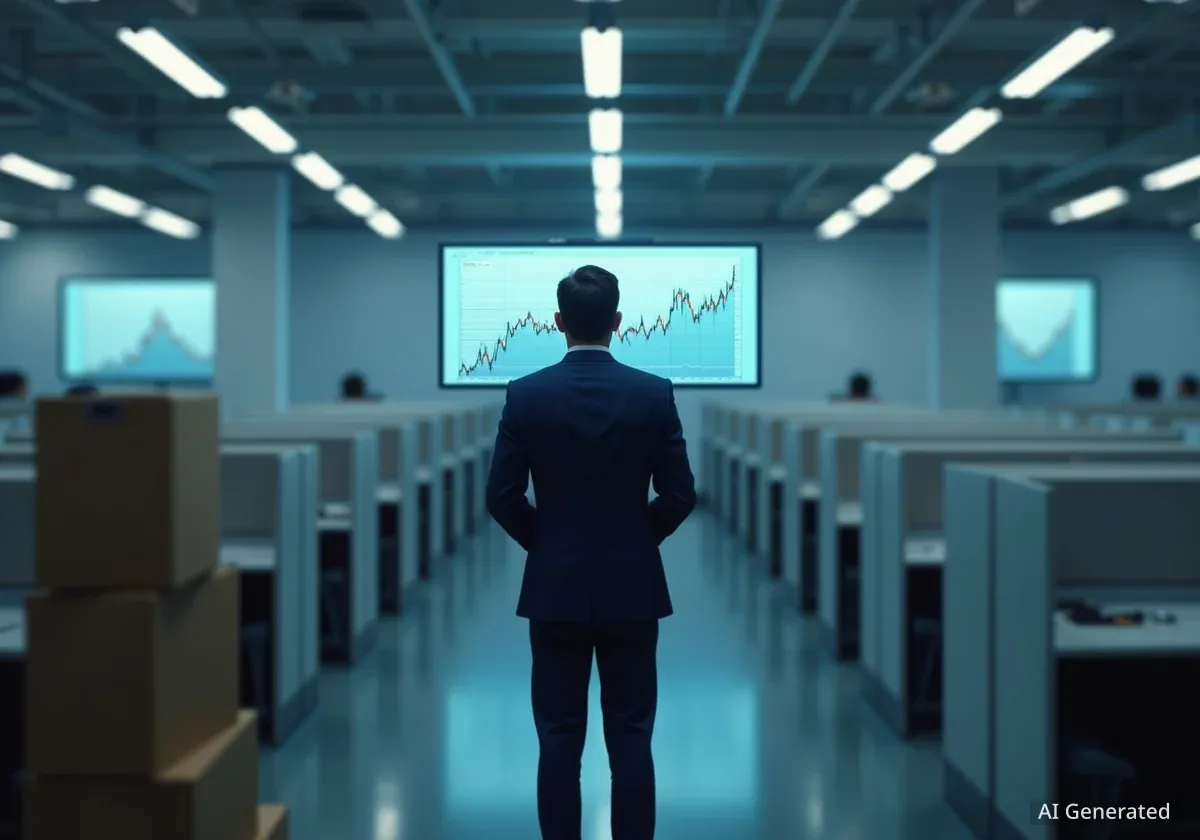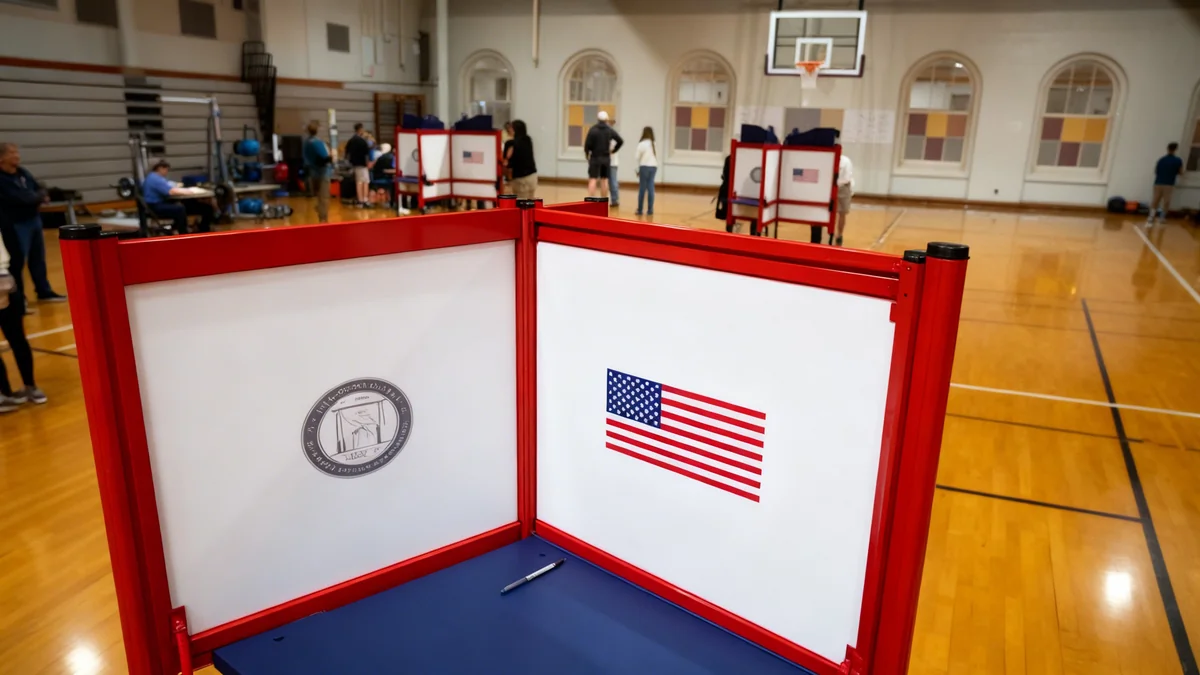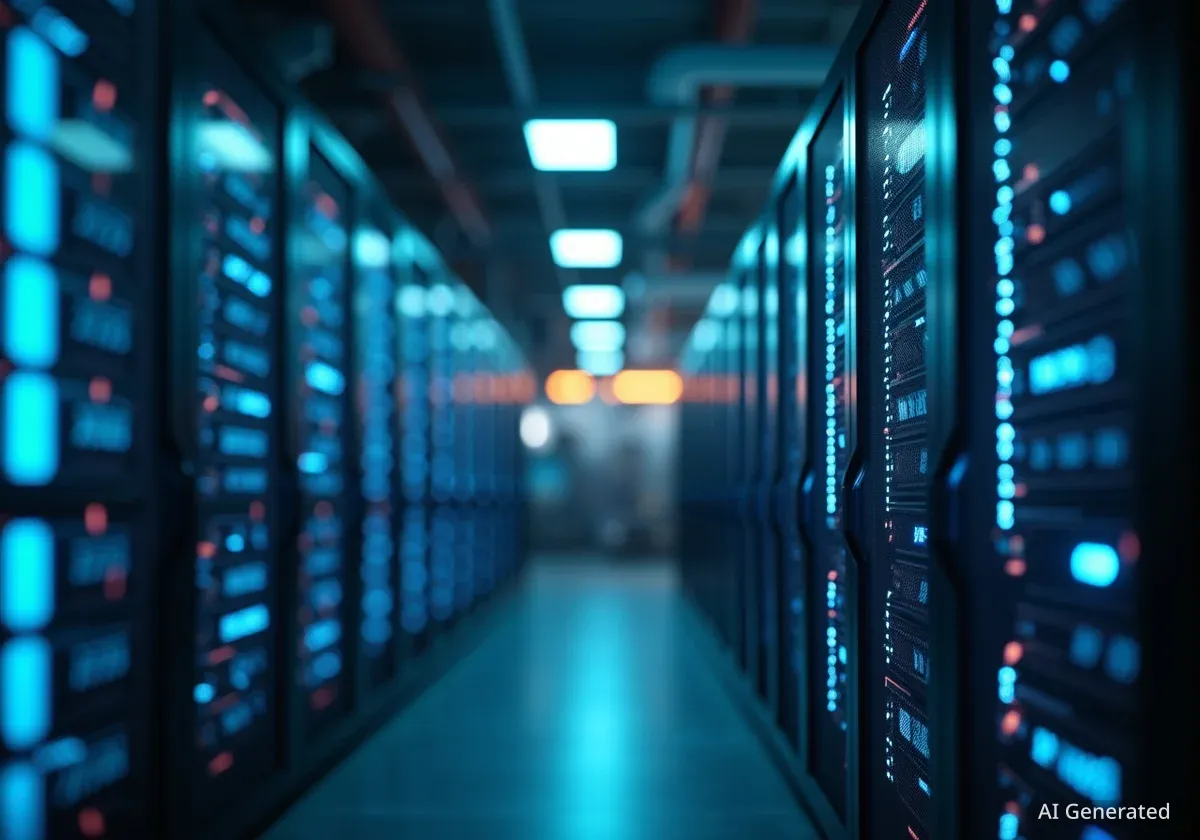A recent national survey indicates that American sentiment toward the U.S. economy is increasingly negative, a trend that has persisted for several years. The poll, conducted by CBS News and YouGov, highlights that rising prices remain the primary factor shaping public opinion, with growing concerns about the national job market and the potential impact of artificial intelligence on future employment.
The findings show that despite many currently employed individuals feeling secure in their roles, a majority of Americans hold a pessimistic view of the broader economic landscape and believe finding a quality job would be difficult.
Key Takeaways
- A majority of Americans believe the U.S. economy is getting worse, continuing a multi-year trend of negative sentiment.
- Rising prices for goods and services are the main reason for the pessimistic economic outlook across all income levels.
- Over half of respondents now rate the U.S. job market as bad, a more negative assessment compared to six months ago.
- There is widespread public skepticism that artificial intelligence will have a net-negative effect on job availability over the next decade.
Rising Prices Fuel Negative Economic Views
The primary driver behind the persistent economic pessimism is the cost of living. According to the poll, most Americans report that the prices of goods and services they regularly purchase have continued to increase in recent weeks. This direct financial pressure heavily influences their perception of the national economy's health.
This sentiment is consistent across different income brackets. While individuals with higher incomes tend to report a better personal financial situation, majorities across all income levels agree that prices are still on the rise. Furthermore, most respondents expect this upward trend in prices to continue, suggesting that relief is not anticipated in the near future.
Survey Methodology
The CBS News/YouGov survey was conducted from September 30 to October 2, 2025, with a nationally representative sample of 2,489 U.S. adults. The data was weighted to reflect national demographics, and the margin of error is ±2.2 percentage points.
Even with some positive indicators, such as more stable gas prices, the overall cost of daily necessities appears to be the most significant metric for the public. This focus on household expenses overshadows other economic data, solidifying a negative outlook that has now lasted for years.
A Contradiction in the Labor Market
The survey reveals a complex view of the U.S. job market. While more than half of Americans now describe the national job market as bad—a notable decline from the more mixed views seen six months prior—this does not fully align with their personal experiences.
A majority of people who are currently employed feel secure in their positions. They report feeling either very or somewhat secure, indicating that the fear of immediate, personal job loss is not the primary concern for this group. However, this personal security does not translate to confidence in the broader market.
"Most Americans think if they were looking for a job, it would be difficult to find the kind of job they want," the report states, highlighting a disconnect between current job stability and future opportunities.
This perception is reinforced by a long-term view of local job availability. When asked to compare the current job market to five years ago, Americans believe there are fewer good jobs in their area by a four-to-one margin. This sentiment is shared even by those who feel secure in their current employment, suggesting a belief that the quality and quantity of desirable jobs have diminished over time.
Widespread Skepticism Over AI's Economic Impact
As discussions around artificial intelligence become more mainstream, public opinion is leaning toward suspicion and concern, particularly regarding employment. A significant portion of Americans believe AI will have a net-negative effect on the number of available jobs in their fields within the next ten years.
This concern is not limited to a specific demographic. It is a view shared across various education and income levels. While younger Americans are slightly less pessimistic, the overall consensus is that AI poses a threat to job availability. This skepticism extends to the technology's broader economic role, with many believing the development of AI will ultimately harm the U.S. economy.
AI's Perceived Role in the Workplace
While the overall outlook on AI's impact on job numbers is negative, there is a nuance in how its role is perceived. Some respondents believe that for jobs that do remain available, AI could make the work itself easier to perform, suggesting a potential increase in efficiency for some workers.
The survey data indicates that the rapid advancements in AI have created more anxiety than optimism about the future of work. This reflects a growing public apprehension that technological innovation may lead to job displacement rather than widespread economic prosperity.
Partisan Divides in Economic Perception
As is common in surveys on economic sentiment, political affiliation plays a significant role in shaping respondents' views. The poll found that Republicans are generally more negative in their assessments of both the overall economy and the job market compared to Democrats.
This partisan lens influences how individuals interpret economic conditions. While concerns about rising prices are widespread, the degree of pessimism and the attribution of blame for economic challenges often differ along party lines. This underlying political division continues to be a key factor in understanding the full spectrum of public opinion on the economy.





